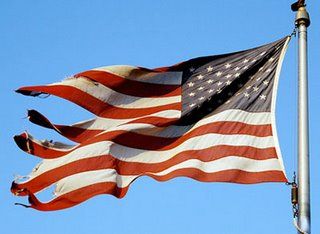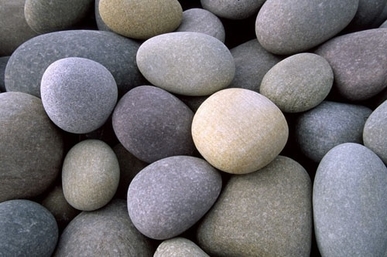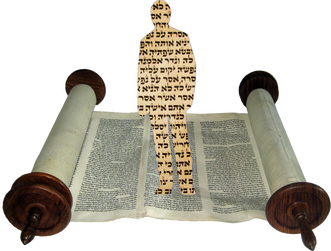
In my years as a rabbi delivering sermons on the High Holy Days, there is at least one thing I have learned: Nobody ever changed his or her mind about how to vote in an election based on what the rabbi said. Nobody. This year, maybe more than ever before, I don’t see the point of trying to tell anyone how to vote on November 8th. With the election now 27 days away, with presidential candidates who are so far apart on the issues, qualifications, and temperament, if you have not yet decided for whom to vote, don’t expect me to help you make up your mind.
This has been an election like none other in our lifetimes. It might be like no other election in our nation’s history. But I am not going to talk today about what will happen between now and Election Day. Rather, I would like to talk about what will happen after the election, regardless of the outcome, when we try to pick up the pieces of our democracy.
No sane person could have wanted this election to go the way it has. Even before the election lost its “PG rating” on Friday, no one could have wanted the ugliness of this election and the deepening divisions in America. This election has lowered us into some dark places in our national character. The lies, the personal smears, the name-calling, the media ambushes, the sleaziness of this election have left us numb. No sane person could have wanted this.
To be clear, I am not drawing a false equivalency between the candidates. Both major party presidential candidates are unpopular, for sure. Both have said divisive things. One candidate, however – Donald Trump – has repeatedly said that, for him, ignoring past standards of civility, even at the risk of offending people based on their gender, race, ability, religion, or national origin, is a necessary corrective to our society’s problem with “political correctness.” Mr. Trump has reached heights of divisiveness never before seen in an American presidential campaign – even going so far as to call his opponent “the devil” and brag that he will throw her in jail if he is elected.
It seems that many Americans like the way that Mr. Trump “shoots from the lip” regarding Mexicans and Muslims, and they like the way that he ridicules his opponents. So, even Trump’s supporters will agree that this election has broken new ground in the way politicians can denigrate religious and racial groups and insult and threaten their opponents. They will agree that this election has been different from previous elections in the way that the integrity of the media has been attacked, and in which charges have been made that the very apparatus of our democracy is “rigged.”
Last Sunday’s debate between Donald Trump and Hillary Clinton was the first American presidential debate ever broadcast on Iranian state television – no doubt because the Iranian government wanted to show its people just how crass and insane American democracy has become. Regardless of how you feel about each of the candidates, it is important to think about where our democracy is heading. It’s important to think about the long-term effects of such vitriol and anger on our society after the ballots have all been counted. How will our society be changed after the new president has been sworn in, in a country where politics has become a full contact sport?
As it stands today, the United States is divided by a widespread belief that “the other side” is hopelessly corrupt and malevolent beyond redemption. If nobody declares a halt to the divisiveness and anger even after the election is over, will the victor of this election – with just a few percentage points more votes than his or her rival – march triumphantly up Pennsylvania Avenue on Inauguration Day and ignore the way our country has been so painfully divided? Will the losers stew in their resentment, declare the results illegitimate, and allow their pain to boil over?
We have seen over the last decade how bad the hyper-partisanship in American politics has gotten. We have seen the federal government shut down for weeks because of partisan bickering. We have seen the Senate refuse to hold hearings on a Supreme Court nominee for seven months and counting. Who doubts, if this trend continues, that the next President will face even worse: Government shutdowns that last, not for weeks, but for months … Senators who threaten to never approve any Supreme Court nominee from a president they don’t like … articles of impeachment delivered on Inauguration Day? That seems to be the way we are heading, and it is a recipe for national disaster.
Or, we will find another way. Because, you know, there is another way. We can learn about it from our nation’s history.
Near the end of the Civil War, Abraham Lincoln spoke in his Second Inaugural Address about the divided nation. He did not preach domination over the vanquished Confederacy, as many in the North wanted him to do. Instead, he said, “With malice toward none, with charity for all, with firmness in the right – as God gives us to see the right – let us strive on to finish the work we are in: to bind up the nation’s wounds,… to do all which may achieve and cherish a just and lasting peace among ourselves and with all nations.” Lincoln’s vision for the end of the war was for the country to awaken from its divisions and to start healing itself.
How long after Election 2016 will it take for us to listen to this other way? The time to start healing our nation is right now. The opportunity is now to say that during the term of our next President – whomever that may be – we need to set higher standards for civility and for a government that actually governs. The time is now to say that after all the name-calling, bullying and breaches in standards of civil conduct, we must be one people, one nation.
Think about what the benefits of such a national shift after the election could be. If political adversaries were able to engage in honest dialogue, we could begin to address issues that have been back-burnered by this era of hyper-partisanship. Our economy would benefit from real compromise on the federal budget and on debt-reduction. Democracy would benefit from an honest meeting of the minds to make elections more fair with sensible and transparent campaign funding rules, secure voting systems, fair ballot access, and an end to the gerrymandered districts that make the outcome of most legislative and congressional races a foregone conclusion. The world’s stability, and the future of Israel, would benefit greatly from a clear bi-partisan strategy on America’s military and diplomacy in the Middle East. We have so much to gain by working together.
Moreover, imagine how much our country would benefit if we would could agree to restore civility and thoughtful, respectful dialogue. Imagine what a better nation we could be if both the winners and losers of the November election realize how much they have to gain if the integrity and ethics of our political process are raised – not lowered.
We can also learn about this “other way” to face hurt and resentment over the past from our own Jewish tradition. We have a concept in Judaism that corresponds to Lincoln’s call for binding up our wounds with forgiveness and humility where there has been hurt and resentment. We call it t’shuvah. It is the word that we often translate as “repentance,” but the word actually comes from the Hebrew root that means “turning.”
It is the call to turn away from the broken and turn toward the whole. It is the call to relent from arrogance and to give way to humility. It is the call to forgive and to allow ourselves to be forgiven. It is the call to let go of the need to be right and to embrace the need to be kind. It is the minute shift in our soul that takes us from unappeasable self-righteousness, and to turn instead to yielding and open-hearted peace. It takes us from a place where we see other people as enemies, and begin, instead, to see them as fellow, flawed human beings.
Last night, I talked about how an individual can take on the difficult task of healing his or herself through t’shuvah. This morning – on Yom Kippur, the day that is entirely devoted to t’shuvah – I offer the same prescription for our society to turn away from the fear and anger that have become the dominant, driving emotions of our society. This is a prescription for us to turn instead toward working together to build a better society and a better world.
Here are three suggestions:
• Step One: Admit mistakes. The first step of t’shuvah for individual healing is to look honestly at the ways that we have caused hurt to others and to ourselves. We apologize where apologies are due. We ask for forgiveness.
We need to do the same on a national level. Part of what has made so many Americans so disgusted by this election season has been the constant and repeated denial of past mistakes. There is plenty of room for Americans on both the left and the right to admit the ways in which we have mistrusted and mistreated each other. We can admit that we have put winning ahead of the best long-term interests of our nation. We can admit that not all of the policies and solutions we have sought in the past have worked to our satisfaction. Whether it is war or healthcare, deregulating Wall Street or confronting terrorism, we won’t be able to move to better solutions until we admit that some of the solutions we have tried have not worked as well as we believed they would.
• Step Two: Relent in your hard feelings about the past. Last night, I talked about how we, as individuals, all have pain and scars from our past and how we can examine them and release them from controlling our future. On a national level, we need to do the same.
This election has shown just how much anger and resentment has built up within the American people. We can allow those feelings to fester after the election as a dark and destructive force, or we can choose to allow those strong feelings to fuel our determination to make our country better. Step two will be for our nation to release itself from the instinct to hold this election over the heads of our political adversaries forever. I don’t know about you, but the idea of re-hashing the insults and anger of this election for the next decade absolutely sickens me. No matter who wins, we are going to need to let it go.
• Step Three: Connect with other people. Just as self-healing depends upon our ability to connect to something larger than ourselves, national healing depends upon our willingness to reach out to one another. Our country has been damaged by rhetoric that treats political opponents as if they were demons and monsters.
No doubt, the internet and social media have added to a climate in which people hear only the voices of those with whom they already agree. We sit at our computers and stare at our screens not to learn about issues, but to find confirmation of what we already think. We have to re-learn the habit of having respectful and constructive conversations with people who disagree with us. We have to re-engage with people and be willing to be part of meaningful and diverse communities.
I am enough of an optimist – or perhaps just naïve enough – to believe that our national habits can change. I believe that if individual Americans become more honest with themselves, more thoughtful, more forgiving, and more connected to each other, we can become a society in which people are able to listen to each other, to disagree with civility, and to see each other as real and true human beings.
If you think I am being unrealistic, let me remind you that it was not that long ago that our politics was much less polarized than it is now. There used to be socially liberal Republicans. There used to be fiscally conservative Democrats. It used to be that not every vote in Congress could be predicted along red and blue lines. In 1947, Republican Senator Arthur Vandenberg declared that “We must stop partisan politics at the water’s edge,” and the principle of a bipartisan foreign policy held for more than half a century. We used to have thoughtful conversations about difficult issues. I believe it can be true again.
It better be, because the stakes have gotten too high for failure. Let’s each decide right now that we will strengthen and not undermine the basic premise of democracy – that people of different opinions can live together with shared responsibility, that they can connect with those who see the world differently, that they can compromise. Let us choose to be a civilization that values civility. Our nation can make t’shuvah by softening our hard hearts and finding forgiveness.
On November 8th, I beg of you, please vote in our local, state and national elections and make a choice. And the next day, I ask you, elect to become a part of the change that will heal ourselves, our society, and our world.
G'mar chatimah tovah. May you be sealed for a good year.



 RSS Feed
RSS Feed
